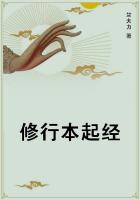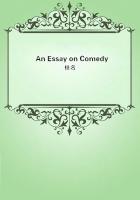"Never!"For the next two or three days Jane had no occasion to observe that Alida was in the least degree obtrusive in her attention to the farmer. She was assiduous in her work and more diligent than ever in her conscious efforts to do what she thought he wished; but she was growing pale, constrained, and silent. She struggled heroically to appear as at first, but without much success, for she could not rally from the wound he had given her so unintentionally and which Jane's words had deepened. She almost loathed herself under her association with Mrs. Mumpson, and her morbid thoughts had hit upon a worse reason for Holcroft's apparent repulsion. As she questioned everything in the sleepless hours that followed the interview in the garden, she came to the miserable conclusion that he had discovered her love, and that by suggestion, natural to his mind, it reminded him of her pitiful story. He could be sorry for her and be kind; he could even be her honest friend and protector as a wronged and unhappy woman, but he could not love one with a history like hers and did not wish her to love him. This seemed an adequate explanation of the change in their relations, but she felt that it was one under which her life would wither and her heart break.
This promised to be worse than what she had dreaded at the almshouse--the facing the world alone and working till she died among strangers. The fact that they were strangers would enable her to see their averted faces with comparative indifference, but that the man to whom she had yielded her whole heart should turn away was intolerable. She felt that he could not do this willingly but only under the imperious instincts of his nature--that he was virtually helpless in the matter. There was an element in these thoughts which stung her woman's soul, and, as we have said, she could not rally.
Holcroft never suspected her morbid thoughts, and his loyal, loving heart was incapable of dreaming of them. He only grew more unhappy as he saw the changes in her, for he regarded himself as the cause. Yet he was perplexed and unable to account for her rapidly increasing pallor while he continued so kind, considerate, and especially so unobtrusive. He assuredly thought he was showing a disposition to give her all the time she wished to become reconciled to her lot. "Thunder!" he said to himself, "we can't grow old together without getting used to each other."On Saturday noon, at dinner, he remarked, "I shall have to begin haying on Monday and so I'll take everything to town this afternoon, for I won't be able to go again for some days. Is there anything you'd like me to get, Mrs.
Holcroft?"
She shook her head. "I don't need anything," she replied. He looked at her downcast face with troubled eyes and shivered. "She looks as if she were going to be sick," he thought. "Good Lord! I feel as if there was nothing but trouble ahead. Every mouthful I take seems to choke me."A little later he pushed away almost untasted a piece of delicious cherry pie, the first of the season. Alida could scarcely keep the tears back as she thought, "There was a time when he would have praised it without stint. Itook so much pains with it in the hope he'd notice, for he once said he was very fond of it." Such were the straws that were indicating the deep, dark currents.
As he rose, she said almost apathetically in her dejection, "Mr. Holcroft, Jane and I picked a basket of the early cherries. You may as well sell them, for there are plenty left on the tree for us.""That was too much for you to do in the hot sun. Well, I'll sell 'em and add what they bring to your egg money in the bank. You'll get rich," he continued, trying to smile, "if you don't spend more.""I don't wish to spend anything," she said, turning away with the thought, "How can he think I want finery when my heart is breaking?"Holcroft drove away, looking and feeling as if he were going to a funeral. At last he broke out, "I can't stand this another day. Tomorrow's Sunday, and I'll manage to send Jane somewhere or take Alida out to walk and tell her the whole truth. She shall be made to see that I can't help myself and that I'm willing to do anything she wishes. She's married to me and has got to make the best of it, and I'm sure I'm willing to make it as easy as I can."Jane was a little perplexed at the condition of affairs. Mrs. Holcroft had left her husband alone as far as possible, as she had advised, but apparently it had not helped matters much. But she believed that the trouble she had witnessed bode her no ill and so was inclined to regard it philosophically.
"He looks almost as glum, when he's goin' round alone, as if he'd married mother. She talked too much, and that didn't please him; this one talks less and less, and he don't seem pleased, nuther, but it seems to me he's very foolish to be so fault-findin' when she does everything for him top-notch. Inever lived so well in my life, nor he, nuther, I believe. He must be in a bad way when he couldn't eat that cherry pie."Alida was so weary and felt so ill that she went to the parlor and lay down upon the lounge. "My heart feels as if it were bleeding slowly away," she murmured. "If I'm going to be sick the best thing I can do is to die and end it all," and she gave way to that deep dejection in which there seems no remedy for trouble.
The hours dragged slowly by; Jane finished her household tasks very leisurely, then taking a basket, went out to the garden to pick some early peas. While thus engaged, she saw a man coming up the lane. His manner instantly riveted her attention and awakened her curiosity, and she crouched lower behind the pea vines for concealment. All her furtive, watchful instincts were awake, and her conscience was clear, too, for certainly she had a right to spy upon a stranger.
The man seemed almost as furtive as herself; his eyes were everywhere and his step slow and hesitating. Instead of going directly to the house he cautiously entered the barn, and she heard him a little later call Mr.















